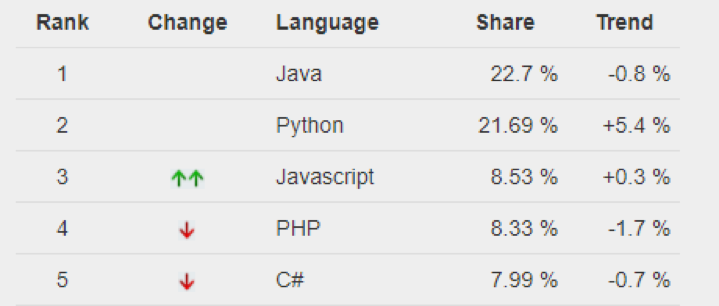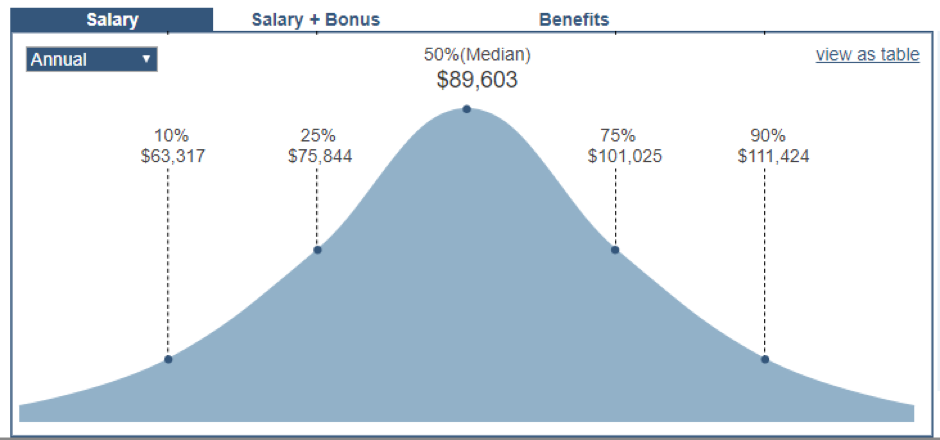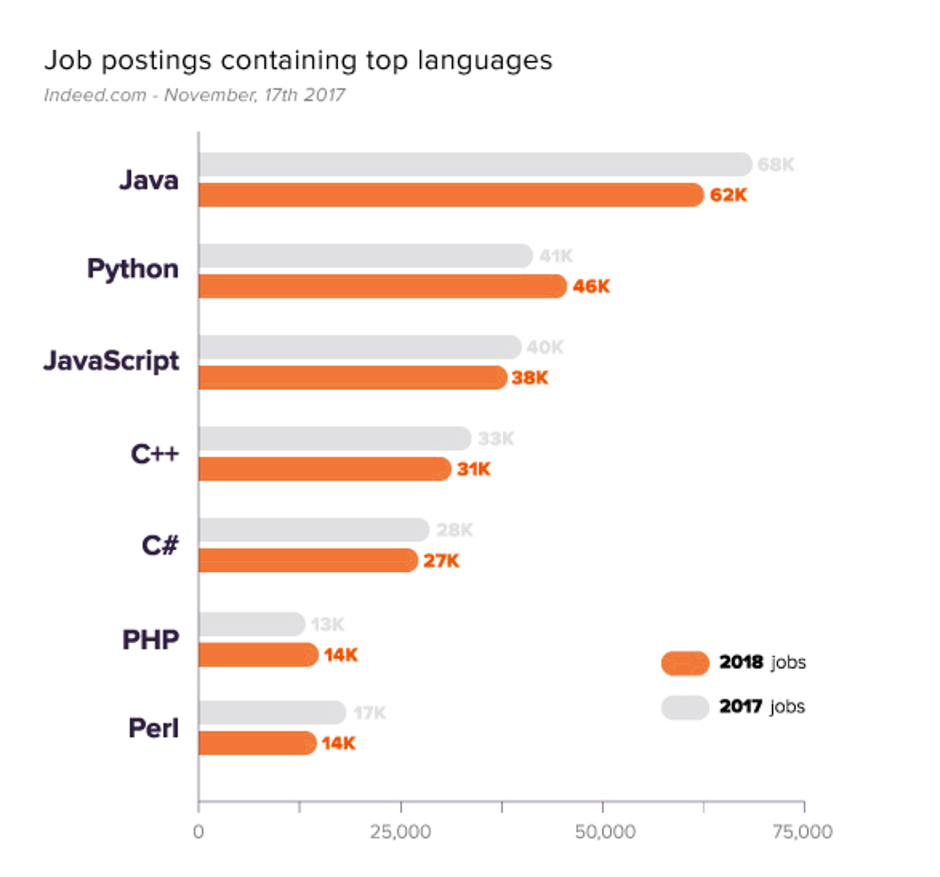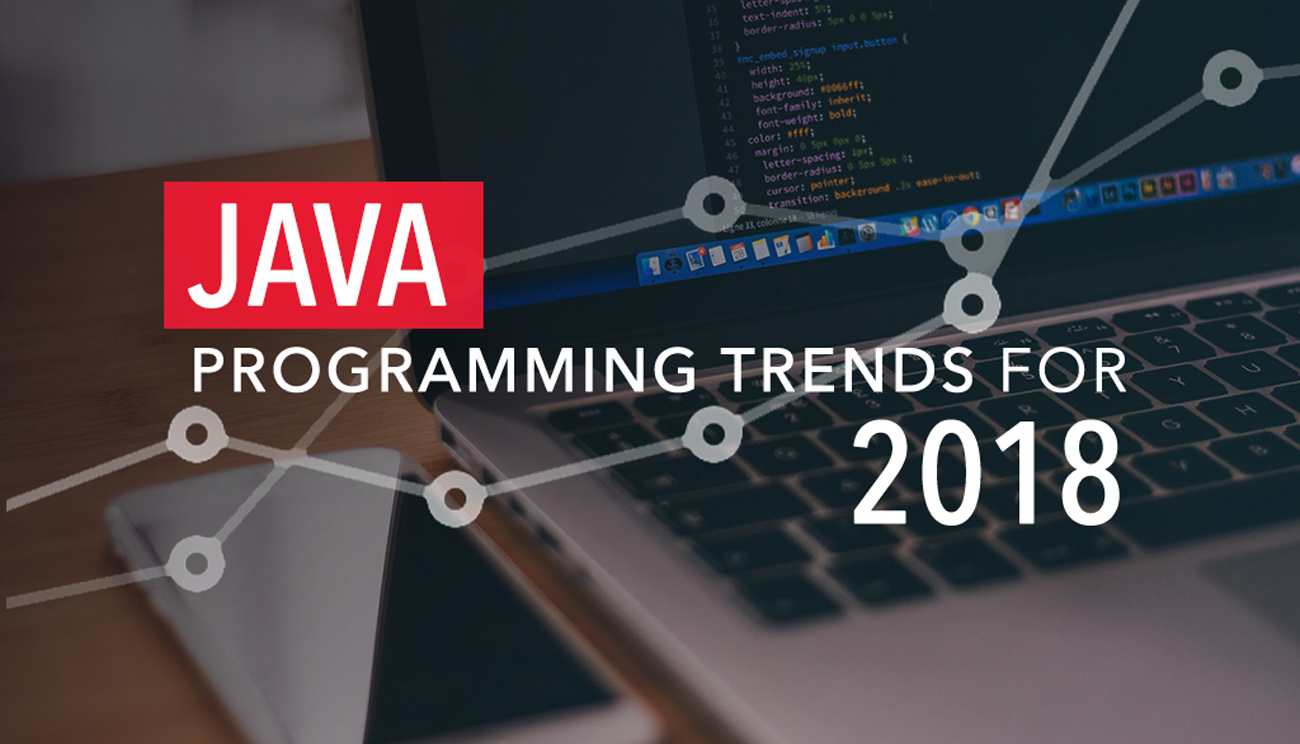In 2018, career growth is probably one of your key goals. And you’ve heard of Java, the go-to language for millions of software developers. Because things change fast in programming industry, it’s useful to stay up-to-date. With this in mind, what are the projected Java trends for 2018?
The TIOBE index looks at the popularity of various programming languages. This is determined by looking at the following variables: number of skilled engineers in a particular language world-wide, courses offered in that language and third party vendors. This information is combined with popular search engine results for the different languages on Google, Bing, Yahoo!, Wikipedia, Amazon, YouTube, etc. For April 2018, same as April 2017, Java was ranked as the most popular language.

Source: https://www.tiobe.com/tiobe-index/
This is substantiated by the PYPL, Popularity of Programming Language Index, which looks at how often language tutorials are searched on Google. Java comes out on top again, according to data from March 2018. The PYPL index is useful for helping you decide which language to study or to use in a new project. Here are their top five most popular languages:

Source: http://pypl.github.io/PYPL.html
Why is Java such a popular language?
There are a number of reasons for Java’s continued popularity, according to Technotification, including:
- The language is over 20 years old and used by billions of devices and millions of developers.
- Java is run on many hardware and operating systems though the Java Virtual Machine.
- There is continued support from Oracle, one of the world’s most popular database management systems.
- Many Fortune 500 companies, up to 90%, are using Java as their server-side programming language.
- There is an excellent Java community and documentation.
Although Java might be the most popular language this year, let’s look at other Java trends in 2018 including demand for java developers, salary expectations, and other important factors.
Salary Expectations for Java Developers in 2018
According to Salary.com, the median annual Java developer salary, as of March 2018 in the US, is $89,603. The range is between $74,844 and $101,025. This data comes from thousands of HR departments and refers to companies of varying sizes, and across a wide range of industries.
Here you can see a graph showing the percentage of people earning more or less than the median expected for Java developers in 2018 in the US. As referenced below, 25% of Java developers earn more than $101,025 per annum.

Source: https://www1.salary.com/Java-Developer-salaries.html
Demand for Java Developers in 2018
Forbes notes their 13 top tech skills for 2018. ‘Mobile application developers will continue to be in high demand, just as they have been the past few years,’ states the piece. In addition, this demand is likely to rise in 2018. Competent app developers will need to know multiple programming languages, including Java, HTML5, Objective-C, C++, C#, Python and Swift.
CodingDojo, which analysed job postings data from the job website Indeed.com, substantiates these findings by noting that job postings in 2018 are still highest for Java. Even though Java decreased in popularity by about 6000 job postings between 2017 and 2018, the language is still ‘extremely well-established’, they stated.

Source: http://www.codingdojo.com/blog/7-most-in-demand-programming-languages-of-2018/
In conclusion, in 2018, Java should continue to enjoy its prominence as far as popularity, developer demand and high salaries are concerned. However, other programming languages are nipping at its heels. Consider, for example, Python which has a solid claim to being the fastest-growing language in high-income countries like the US, UK, Germany and Canada, according to this Stack Overflow blog post. Nevertheless, if career growth is your aspiration for 2018, Java is an excellent programming language to learn. If you’re keen to learn Java, consider doing either a Software Engineering bootcamp or a Mobile Developer Bootcamp, both offer Java. Read more about key differences between Mobile Development and Software Engineering.


